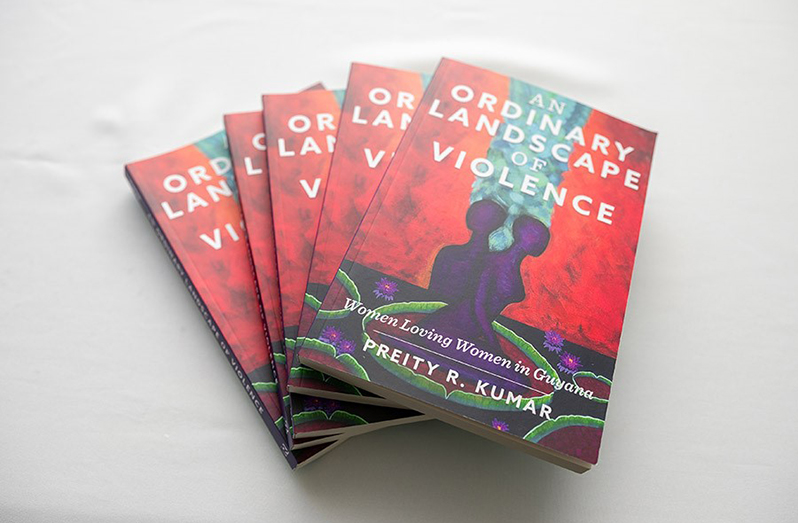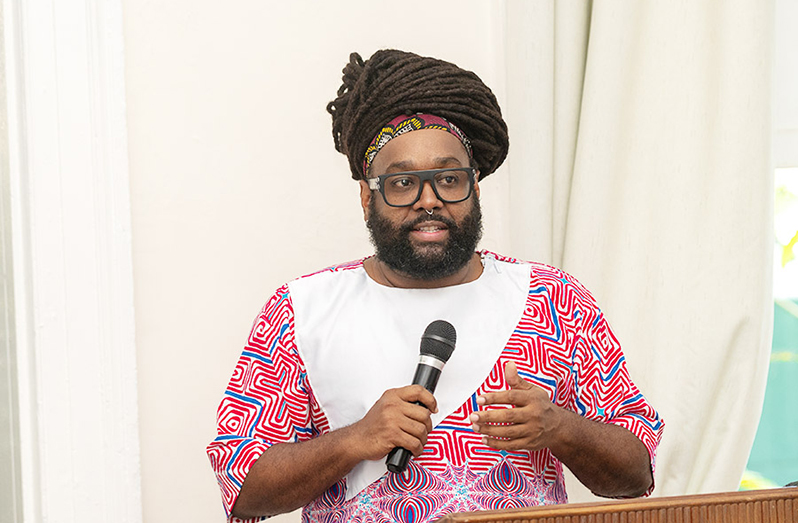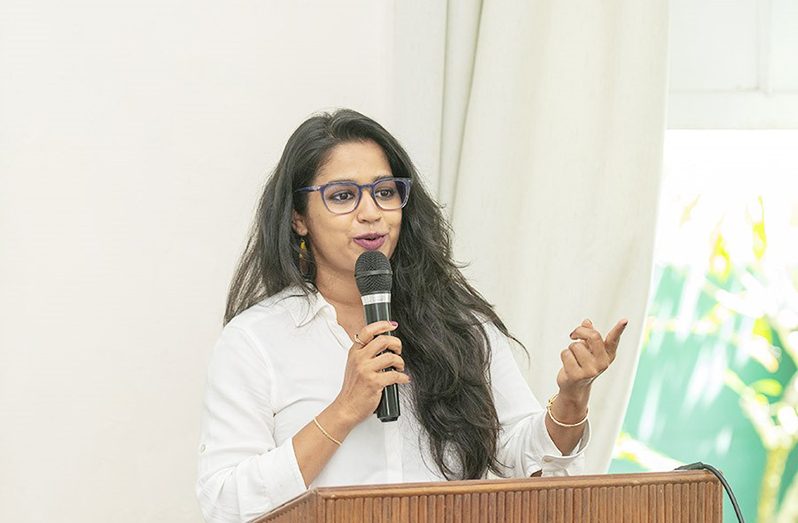GUYANESE scholar Dr. Preity Kumar officially launched her book titled, ‘An Ordinary Landscape of Violence: Women Loving Women in Guyana’, at the Moray House in Georgetown on Thursday.
Hosted by key activist organisations: Red Thread, Sexualities, Women and Genders (SWAG), The Society Against Sexual Orientation Discrimination (SASOD) Guyana, and the country’s leading tertiary institution, the University of Guyana, the book launch also commemorated Spirit Day, an annual LGBTQ awareness day observed on the third Thursday in October.
Dr. Kumar, in her book, examines the various forms of violence confronted on a daily basis in both rural and urban communities in Georgetown and Berbice. Throughout her book, she illustrates how society, family, and religious expectations shape the experiences of the women across race, class, gender, sexuality and geographical location.
Dr. Nikoli Attai, a Trinidad and Tobago academic, community archivist and author whose first book was also launched in Guyana in July, said in his introduction and brief review of the book: “She highlights the pervasive violence that often accompanies the relationship that these women form with others, with whom they share physical, emotional, psychological, and sexual energies with. And this really important analysis is grounded in the concept of ordinary violence. This really forms a concept that helps us to explore how individuals navigate state structures while negotiating and absorbing the residual effects of the ordinary everyday violence that we confront.”

Dr. Attai went on to say that Dr. Kumar highlighted very important moments in her book for readers to understand how violence manifests itself.
He explained that Dr. Kumar does this by describing the impact of violence, and places emphasis on addressing this issue.
The book opens by establishing guidelines for racially and politically-charged environments.
These environments, he said, create a filter and a problem for fear, distrust, and even suspicion among persons.
He noted that in the book as well, Dr. Kumar spends time providing important and rich historical context to show readers how legacy, for example enslavement, indentureship, etc., serves to continue to release gender and sexual expression while controlling how women perceive themselves as sexual, spiritual, and social beings.
Providing some context on her book, Dr. Kumar said that the stories chronicled in her book, are stories from a particular moment, on a particular day that she would have interviewed women in Berbice and Georgetown after her arrival here in 2015.
She explained that she takes the stories and connects them to either the State structures that we have in place in Guyana or the religious ideologies of the place or the cultural, patriarchal understandings of femininity, for us to see how the women’s lives are very much impacted and these ideas materialise in their lives as well.
The following year, while in Toronto, Canada, Dr. Kumar learnt from her mother that the apartment in which she was staying was raided, and beneath the balcony was the remains of Babita Sarjou, a woman who was murdered by her husband years prior.

She related, “I never set out to do a project on violence; it came to me. This project is dedicated to her, and while I was busy doing my interviews, I realised a larger story is waiting for me to be told. So, in writing this book, I came to realise that this landscape of violence was affected. And what I mean by that is that how will we experience the violence that is felt, but we cannot name it? How do we talk about the violence which are invisible?”
Dr. Kumar continued to explain that in her book readers will notice her asking questions about what it would mean for us to think about violence beyond the physical, visible, and spectacular.
“What would it mean to think of violence already embedded in the landscape that we’re part of; our spaces that we’re part of, already present in our relationship, rather than a singular event? And more importantly, I ask, how does violence continue after the act has ended? What is the residual harm of that violence that we have experienced that stays with us? So, you’ll see me asking these questions throughout the book,” she added.
To purchase a copy of Dr. Kumar’s book, “An Ordinary Landscape of Violence: Women Loving Women in Guyana”, persons can visit the websites of Rutgers University Press or Amazon.





.jpg)








